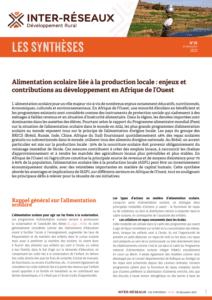As global rates of hunger continue to climb, food prices remain high and unstable, and climate change disrupts agricultural production, the age-old idea of food reserves is making a comeback. The Institute for Agriculture and Trade Policy (IATP) is pleased to announce the release of Grain Reserves and the Food Price Crisis: Selected Writings from 2008–2012, a compendium of current writing on food reserves: the simple yet powerful idea of saving food in times of plenty for use in times of scarcity.
Governments around the world, from Guatemala to Mali to the Philippines, are interested in stockholding programs. Donors and international institutions have failed to respond, pointing governments to more “market-based solutions.” These solutions include relying on international trade and multinational grain companies. They have not worked. During the food price spikes of 2007-08, major food exporters imposed bans or higher export taxes on food, cutting supply when prices were high. Multinationals broke contracts with poor country governments, chasing higher profits from richer customers elsewhere in the world. Governments of net food-importing countries took note. They want to lessen their dependence on imports and stabilize international markets, aware their reliance on those markets has never been so high. The idea also has resonance in developed countries looking for tools to stabilize agricultural markets for farmers and consumers.
The FAO’s Committee on World Food Security (CFS) discussed reserves in 2011. So did the G-20. Both left only very small doors open to further work to expand the use of food reserves. IATP hopes this reader will open the doors wider and allow an exploration of how reserves could better advance food security and stabilize price volatility. This collection provides an overview of recent writing on reserves, points to work in progress and encourages a more open and rigorous debate about how reserves fit into local, regional, national and international food security strategies.







